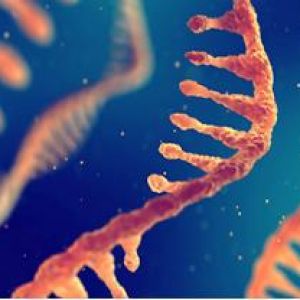Optimized CAR-T Design Locally Activates Small-molecule Cancer DrugsPosted by Candy Swift on February 7th, 2022 CAR-T-cell therapy is a type of immunotherapy that fights cancer by using specifically engineered T cells. T cells from a patient\'s blood are taken and modified to develop specific structures on their surface known as chimeric antigen receptors (CARs). The new receptors on these CAR-T cells allow them to latch onto a specific antigen on the patient\'s tumor cells and eliminate them. The scope to further optimize CAR-T cell design and delivery raises the hope of a cure for many more people with malignancies, and heralds an exciting new era in cancer treatment. Many research has focused on the optimization of CAR-T design. On December 30, 2021, researchers from Memorial Sloan Kettering (MSK) Cancer Center published their findings in Nature Chemical Biology. A novel designed CAR-T platform that converts cells into targeted \"micropharmacies\" with local activation of small-molecule prodrugs has been found to have improved antitumor efficacy and can solve a number of present challenges in CAR-T-cell therapy. CAR-T-cell therapy, which are genetically engineered versions of a patient\'s own immune cells, are limited to the treatment of B-cell tumors and are hampered by a number of inherent factors. They are hindered by antigen-negative tumor cell resistance, which means they can only kill cancer cells that have the marker they identify. This frequently results in problems of \"escape\" from the therapy. Furthermore, in the tumor microenvironment, CAR-T cells might become exhausted and immunosuppressive. The research team thus developed a unique way to produce CAR-T cells that can create an orthogonally acting small-molecule medication locally at the disease site to improve the effectiveness of current CAR-T approaches. Synthetic enzyme-armed killer cells (Seaker), a revolutionary CAR-T design, can transform cells into \"micropharmacies\" that may deliver a toxic payload directly to a tumor, killing both tumor cells that express the tumor marker and tumor cells nearby that do not. According to the findings of the study, prodrugs are activated locally at tumor sites, leading to an improvement of the anti-cancer efficacy in vitro and in vivo. Mice models were used to evaluate Seaker cells\' performance. As treated with Seaker cells and the matching prodrug. Active enzymes and consequently decreased tumor bioluminescence were detected when treated with Seaker cells and the corresponding prodrug and when treated with Seaker cells alone. “CAR-T cell therapy can be modified rapidly and has great and strong application potential according to a large number of research and clinical trials,” said a scientist at Creative Biolabs, “we understand the huge potential in CAR-T technology and are dedicated to powering global projects on CAR-T cell therapy, CAR-macrophage therapy, CAR-B cell therapy, etc.” It’s believed that, in time, scientists will provide more optimized cell therapies. As the first computers were very expensive and lacked substantial computing power by today’s standards, cell therapy will follow the same path. As the technology improves, it will allow cells in our body to be more highly targeted to kill cancer cells with less toxicity. In the future, we are really going in big on cell therapy. Like it? Share it!More by this author |


